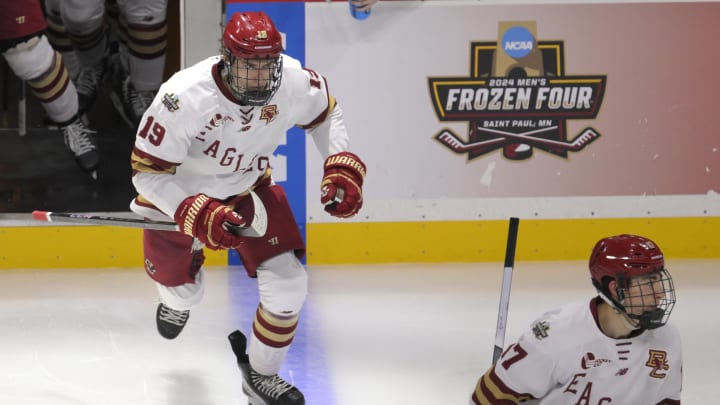New Lawsuit Against NCAA Could Open Door to CHL Players

The road to the NHL is a difficult one. Over the last two decades, the usual path to the league has changed. It was once dominated by the Canadian junior hockey leagues (CHL) feeding into the NHL. Now there is a blend of CHL players, along with international leagues, and college players from the NCAA.
And as the different organizations and entities are expanding their reach and impact on the NHL, there are constant changes and new issues to address. The latest one could carry a huge ripple effect on amateur and junior hockey.
In a new class-action lawsuit filed, the NCAA along with several specific colleges and universities were named as the defendants. The suit is challenging the NCAA's current rule that prevents all current and former CHL players from playing on an NCAA team. According to Sean Gentile of The Athletic, the lawsuit claims that the NCAA is violating antitrust laws and preventing competition. In a quote he obtained from Stephen Lagos, an attorney from the group representing the plaintiff, Lagos provided more information on their lawsuit's goal.
"The NCAA's ban on current and former CHL players has prevented young hockey players from doing what's best for their careers for years," he said. "We're optimistic this lawsuit will end the NCAA's unfair and illegal practice and compensate players for the harm caused."
This lawsuit is one of many that have come up since the NCAA's recent rulings to allow players to make money. Previously, the NCAA's reason for banning CHL players was because junior players could receive a stipend and some were making money from NHL contracts they had signed. Now, NCAA players are permitted to make money off of their name, image, and likeness (NIL), and in a separate recent settlement, some schools will begin paying players directly.
The outcome of this ruling will have an effect on the entire junior and amateur circuit, as well as the NHL. For starters, this could increase the number of young players drawn to the NCAA, as it could now become a legitimate option. Another sticking point as Gentile points out, is entry-level contracts are slightly different for CHL and NCAA prospects. The rights for a player drafted out of the CHL are held by the drafting team for two years, compared to four years for an NCAA player.
But the larger effects will be on other junior leagues. If there are an exodus of players to the NCAA, will the CHL or USHL be affected? In Europe, many top young prospects ply their trade in top professional leagues like the SHL or KHL. Would the ability to make money in the United States be too big of a selling point for prospects? There are lots of questions with this lawsuit being fired. A ruling will take some time, but the outcome is sure to have a huge impact on the NHL and the game of hockey.
